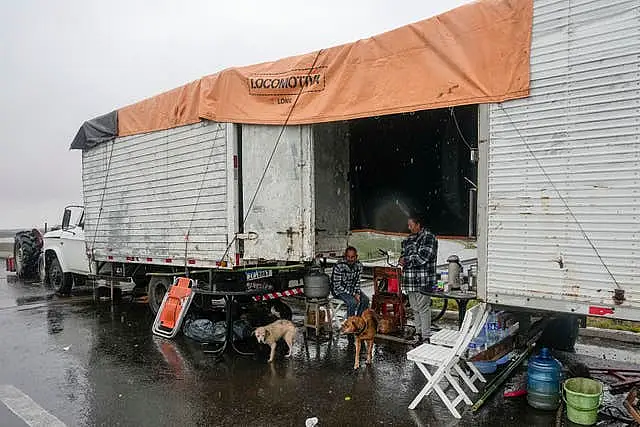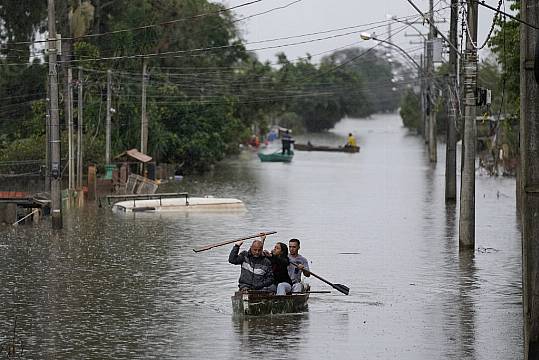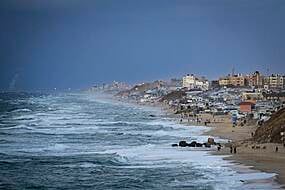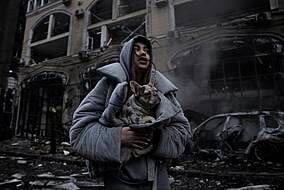More heavy rain is forecast for Brazil’s already flooded Rio Grande do Sul state, where many of those remaining are poor people with limited ability to move to less dangerous areas.
More than 15 centimetres (nearly six inches) of rain could fall over the weekend, according to the Friday afternoon bulletin from Brazil’s national meteorology institute.
It said there is also a high likelihood that winds will intensify and water levels rise in the Patos lagoon next to the state capital, Porto Alegre, and the surrounding area.
Carlos Sampaio, 62, lives in a low-income community next to soccer club Gremio’s stadium in Porto Alegre. His two-storey home doubles as a sports bar.

Even though the first floor is flooded, he said he will not leave, partly out of fear of looters in his high-crime neighbourhood, where police carry assault rifles as they patrol its flooded streets. But Mr Sampaio also has nowhere else to go, he told The Associated Press.
“I am analysing how safe I am, and I know that my belongings aren’t safe at all,” Mr Sampaio said.
“As long as I can fight for what is mine, within my abilities to not leave myself exposed, I will fight.”
At least 126 people have died in the floods since they began last week, and 141 more are missing, local authorities said on Friday.
The number of people displaced from their homes due to the torrential rains has surpassed 400,000, of whom 70,000 are sheltering in gyms, schools and other temporary locations.
In Brazil, the poor often live in houses built from less resilient materials such as wood and in unregulated areas more vulnerable to damage from extreme weather, such as low-lying areas or on steep hillsides.
“We cannot say that the worst is over,” Rio Grande do Sul Governor Eduardo Leite said on social media on Friday.
The scale of devastation may be most comparable to Hurricane Katrina that hit New Orleans, Louisiana, in 2005, Sergio Vale, chief economist at MB Associates, wrote in a note on Friday.
Rio Grande do Sul has the sixth highest GDP per capita among Brazil’s 26 states and the federal district, according to the national statistics institute. Many of the state’s inhabitants descend from Italian and German immigrants.
The meteorology institute predicts the arrival of a mass of cold and dry air will reduce the chance of rain beginning Monday. But it also means temperatures are set to drop sharply, to around freezing by Wednesday.
That makes hypothermia a concern for those who are wet and lacking electricity.
The UN Refugee Agency is distributing blankets and mattresses. It is sending additional items, such as emergency shelters, kitchen sets, blankets, solar lamps and hygiene kits, from its stockpiles in northern Brazil and elsewhere in the region.







